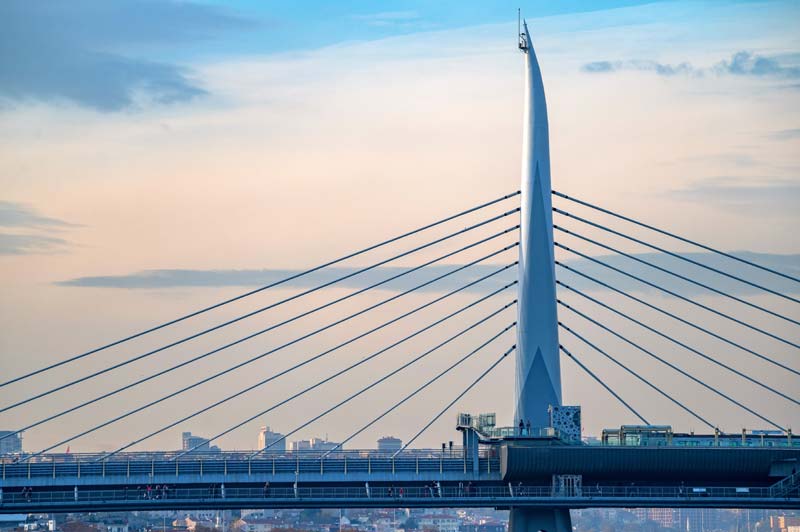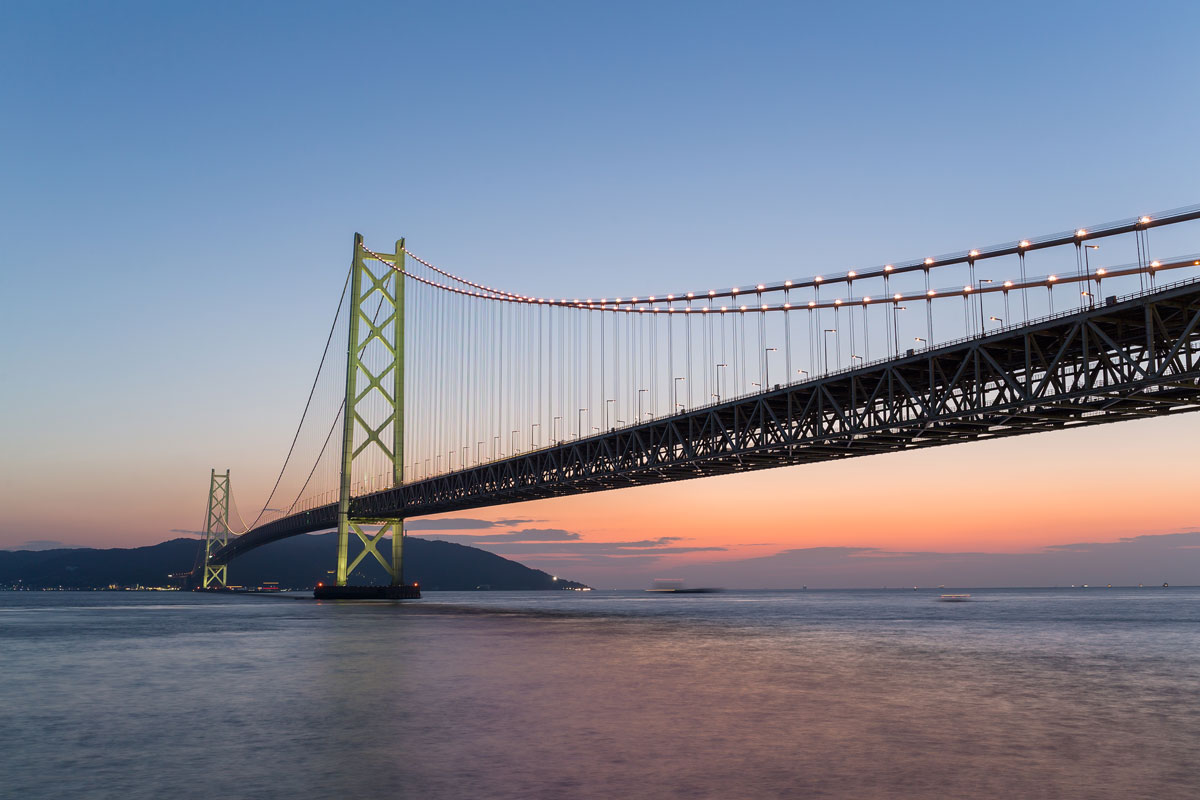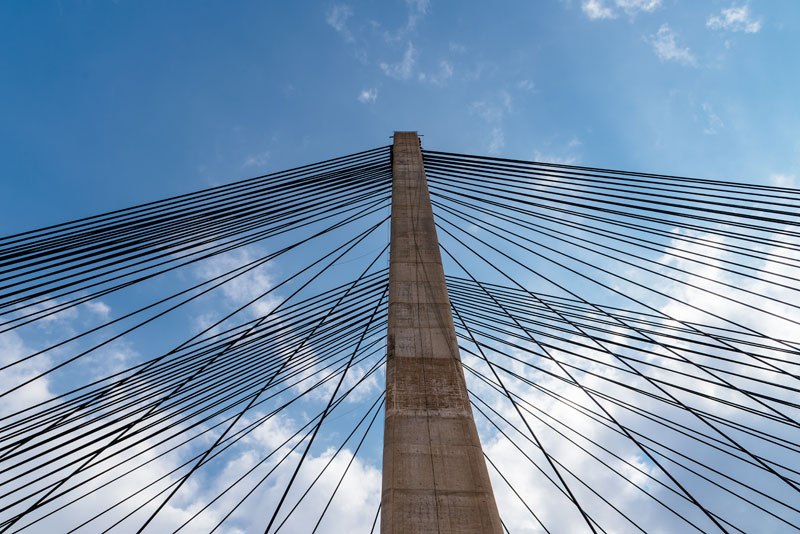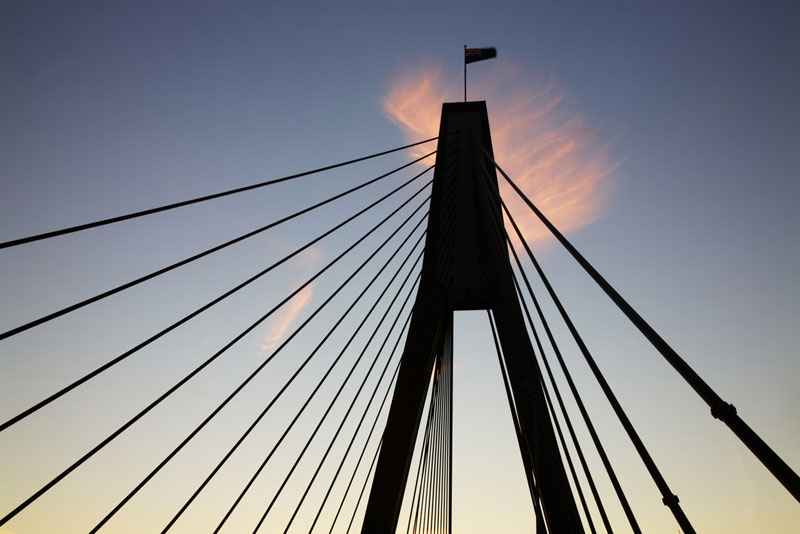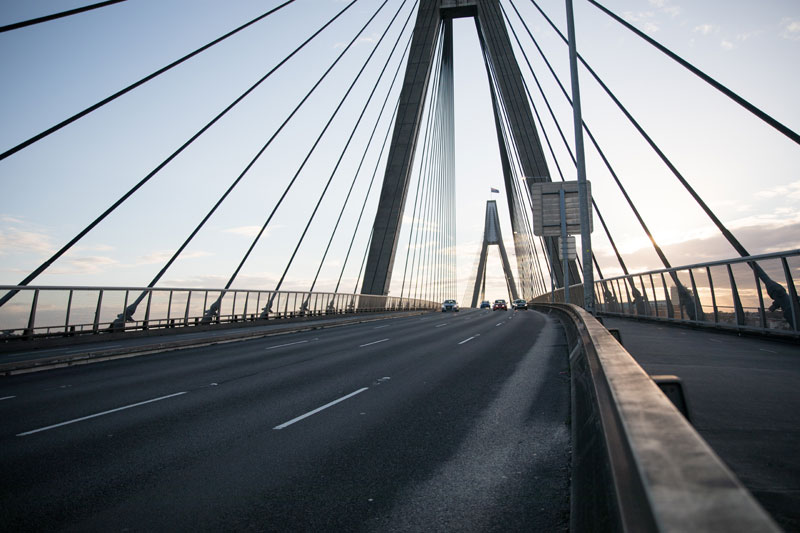Bridge of Messina
The Protagonists
The supporting towers of the Messina Bridge are the true protagonists of the project — symbols of strength and ingenuity. They sustain the cables and suspended deck, transmitting immense forces from traffic, wind, and seismic activity to the ground. Designed with advanced materials and monumental foundations, they form the technological heart of the bridge and a new Mediterranean landmark reshaping the landscape between Sicily and Calabria.The supporting towers of the Messina Bridge
Bridge of Messina
The supporting towers of the Bridge represent one of the most spectacular and complex elements of the entire infrastructure – true pillars of engineering that embody the synthesis of technological innovation, structural integrity, and landscape harmony. These colossal structures are tasked with supporting the cable system and the suspended deck, transferring to the ground the enormous stresses generated by the structure’s self-weight, road and rail traffic, as well as the wind actions and seismic events characteristic of the Strait area.
Their design is not the product of a single study, but the result of decades of research, modelling, and experimentation conducted by the most prominent structural engineering centres in Italy and abroad. Designers compared different solutions and analysed the towers’ behaviour under extreme scenarios, drawing inspiration from the world’s most advanced structures, such as the Akashi Kaikyō Bridge in Japan, the Great Belt Bridge in Denmark, or the Golden Gate Bridge in San Francisco.
The towers of the Messina Bridge do not merely represent static supports; they are engineered to interact dynamically with the surrounding environment. Their slender form, refined through wind tunnel tests and sophisticated digital models, minimises turbulence and allows for optimal load distribution. The choice of materials – high-strength steels and special concretes treated for marine corrosion resistance – ensures durability and reliability even under the most demanding conditions.
HIGHLIGHT
Bridge of Messina
IN DETAIL
Bridge of Messina
Dimensions and structural characteristics
Bridge of Messina
The pylons — often referred to as towers — will reach a height of approximately 399 meters, ranking them among the tallest structures ever built for a suspension bridge. Each tower consists of two parallel shafts connected by horizontal and diagonal cross-beams, providing torsional stability and resistance to asymmetric loads. The lower section, with its more substantial design, is engineered to anchor into deep foundations capable of transferring loads to the bedrock, while the upper portion is more slender to enhance aerodynamic performance.
The foundations will be constructed using exceptionally large reinforced concrete footings, supported by drilled piles and base slabs designed to distribute forces over a wide area. This solution addresses the unique geotechnical conditions of the Strait, which are characterized by heterogeneous soils and high seismic accelerations.

Function and Dynamic Behavior
Bridge of Messina
The supporting towers are responsible for bearing the giant main cables that hold up the bridge deck. Each tower is equipped with saddles and anchorages made of ultra-high-strength steel, designed to minimize friction and allow for controlled movements caused by thermal variations, variable loads, and dynamic stresses.
The behavior of the towers has been studied using sophisticated three-dimensional models and wind tunnel tests to ensure stability even in wind gusts exceeding 300 km/h. Similarly, seismic analyses have considered scenarios up to a magnitude of 7.5 (Moment Magnitude scale, Mw), allowing for the incorporation of energy dissipation devices and expansion joints capable of absorbing a portion of the stresses without compromising the structure’s safety.

Materials
Bridge of Messina
The selection of materials is strategic: ultra-high-strength steels are employed, capable of withstanding significant stresses without losing ductility, along with special concretes containing additives that enhance durability in the presence of salt spray and humidity. Every joint is designed to resist fatigue and the effects of marine corrosion. The main cable anchorages are constructed with particularly tough alloys, engineered to transfer loads with maximum precision and to accommodate micro-movements caused by thermal variations or oscillations induced by traffic and wind.

Construction technologies
Bridge of Messina
The construction of the towers will require the use of special high-strength steels and high-performance concretes, capable of combining robustness, durability, and resistance to marine corrosion. The assembly will be organized in progressive phases: first, the construction of the foundations, followed by the erection of the shafts using prefabricated segments or cast-in-place concrete, and finally, the installation of the cross-beams and accessory elements.
Each phase will be accompanied by topographic surveys and real-time structural monitoring to verify the correct geometry and the absence of abnormal deformations. The towers will also be equipped with permanent inspection and maintenance systems, including internal elevators and access platforms, which will allow personnel to safely access all the way to the top.

Symbolic and landscape meaning
Bridge of Messina
Beyond their load-bearing function, the pylons of the Messina Bridge will hold significant symbolic and landscape value. Slender and visible from a great distance, they will become a new visual landmark for those crossing the Strait or observing it from the coasts of Calabria and Sicily. Their profile, elegant and harmonized with the suspended span, is destined to become an icon of Italian engineering and Mediterranean identity—a tangible sign of the nation’s ability to deliver cutting-edge works while respecting a natural and historical context unique in the world.

Data relating to the load-bearing towers of the Messina Bridge
Bridge of Messina
| Parameter | Value / Description |
|---|---|
| Overall Height | ≈ 399 m (among the tallest suspension bridge towers worldwide) |
| Configuration | Two parallel shafts connected by horizontal and diagonal cross-beams for torsional stiffness |
| Foundations | Reinforced concrete footings on drilled piles and base slabs anchored to bedrock |
| Materials | High-strength steels, high-performance concretes, marine corrosion protection treatments |
| Design Loads | Static and dynamic actions from traffic, wind (>300 km/h) and seismic events (up to Mw 7.5) |
| Safety Systems | Seismic energy dissipation devices, joints for thermal and dynamic movements, continuous structural monitoring |
| Maintenance | Internal elevators and access platforms for inspections, predictive maintenance with SHM sensors |
| Symbolic Role | New landmark of the Strait, representing innovation and connection between Sicily and Calabria |



